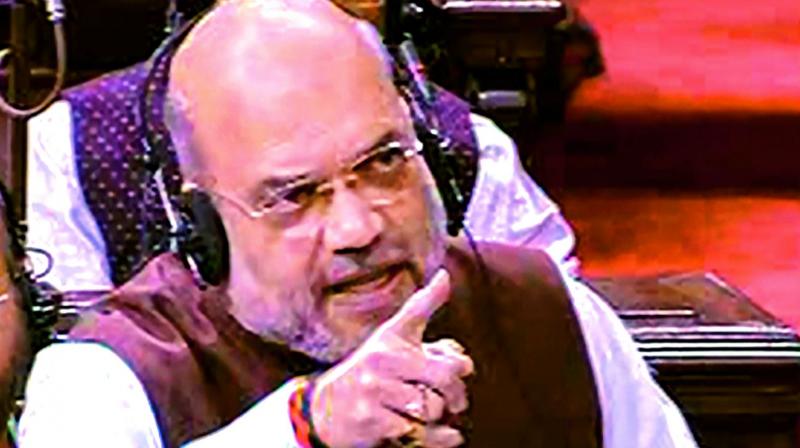Centre won’t touch Andhra Pradesh, Telangana special zonal norms
Basically, Article 370(D) safeguards the rights of local people in employment and education.

Hyderabad: With the Union government revoking Article 370 for Jammu and Kashmir, the relevance of sustaining Article 371 (D), under which Andhra Pradesh and Telangana states have got some special provisions, has gained significance.
During the debate in Parliament on the bills with regard to Article 370, Union home minister Amit Shah had said that the government would not tinker with Article 371.
The Central government had accorded certain special provisions to the erstwhile combined state of Andhra Pradesh in view of the agitations that had taken place after the abolition of the Mulki Rules, which aimed at protecting local interests in admission to educational institutions and jobs, which were brought in by the then Nizam, according special status to the citizens of Hyderabad state.
According to Article 371(D), “The President may by order made with respect to the state of Andhra Pradesh provide, having regard to the requirements of the state as a whole, for equitable opportunities and facilities for the people belonging to different parts of the state, in the matter of public employment and in the matter of education, and different provisions may be made for various parts of the state.”
Basically, Article 370(D) safeguards the rights of local people in employment and education.
Even after the bifurcation of Andhra Pradesh and the formation of Tela-ngana State, the Centre retained the Article under Section 95 of the AP Reorganisation Act, 2014.
With the abolition of Article 370 by the Centre, political parties have been discussing the relevance of Article 371(D) in the current scenario.
B Vinod Kumar, politburo member of the Telangana Rashtra Samit-hi (TRS), said that Article 371(D) is aimed at giving priority to locals in education and employment and to organise local cadres and zonal-wise recruitment.
He said that it does not grant any special status with regard to citizenship, or rights of the locals on land as was granted to northeastern and hill states of the country under clauses E, F, I, J, and K of Article 371.
He said that the TRS will strongly oppose any move by the Centre to tinker with Article 371 (D).
N. Ramachandra Rao, a BJP Member of the Legislative Council, said that Article 371(D) will not be touched and is different from Article 370.
He said that Article 371(D) was necessitated because of apprehensions in the regions of Rayalas-eema, Coastal Andhra and Telangana in the erstwhile Andhra Pradesh about any injustice that may be caused to people in these areas in education and employment.
He said that though the state had been bifurcated, the Article is still in force in both states and the Centre will not meddle with it.

